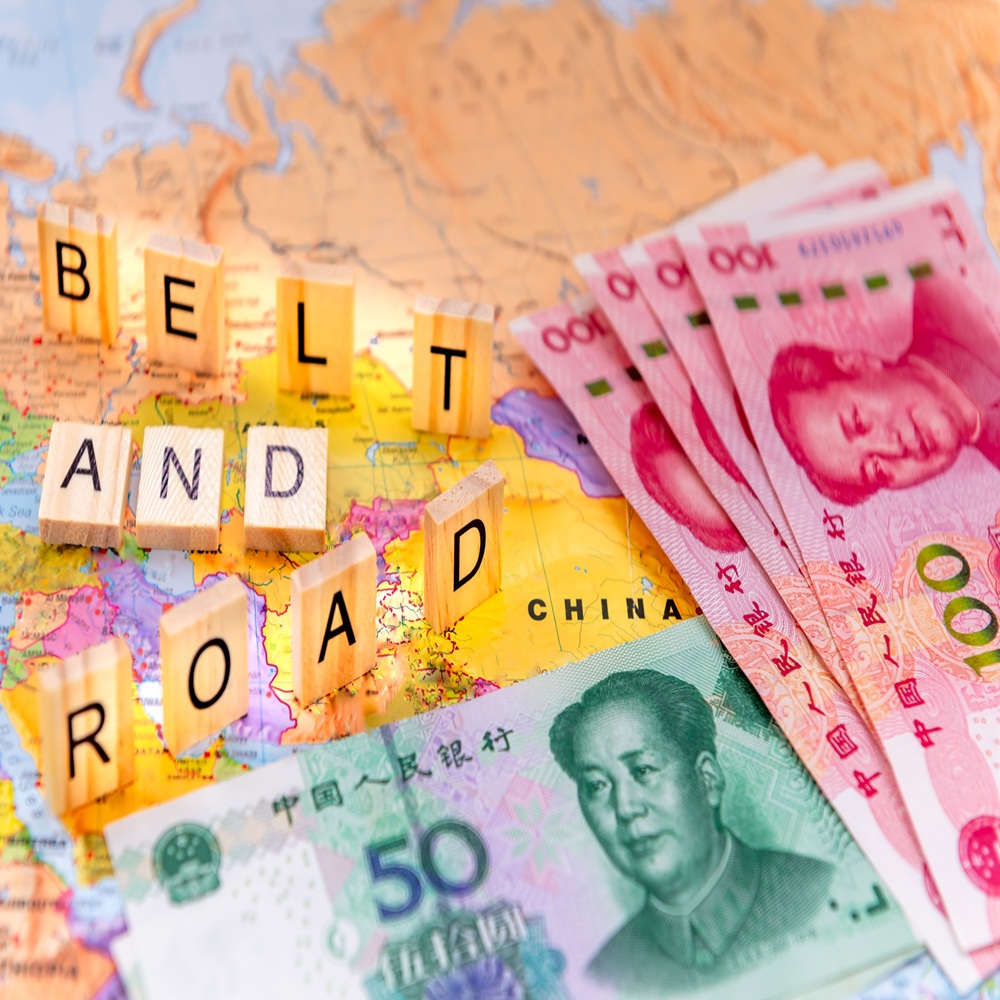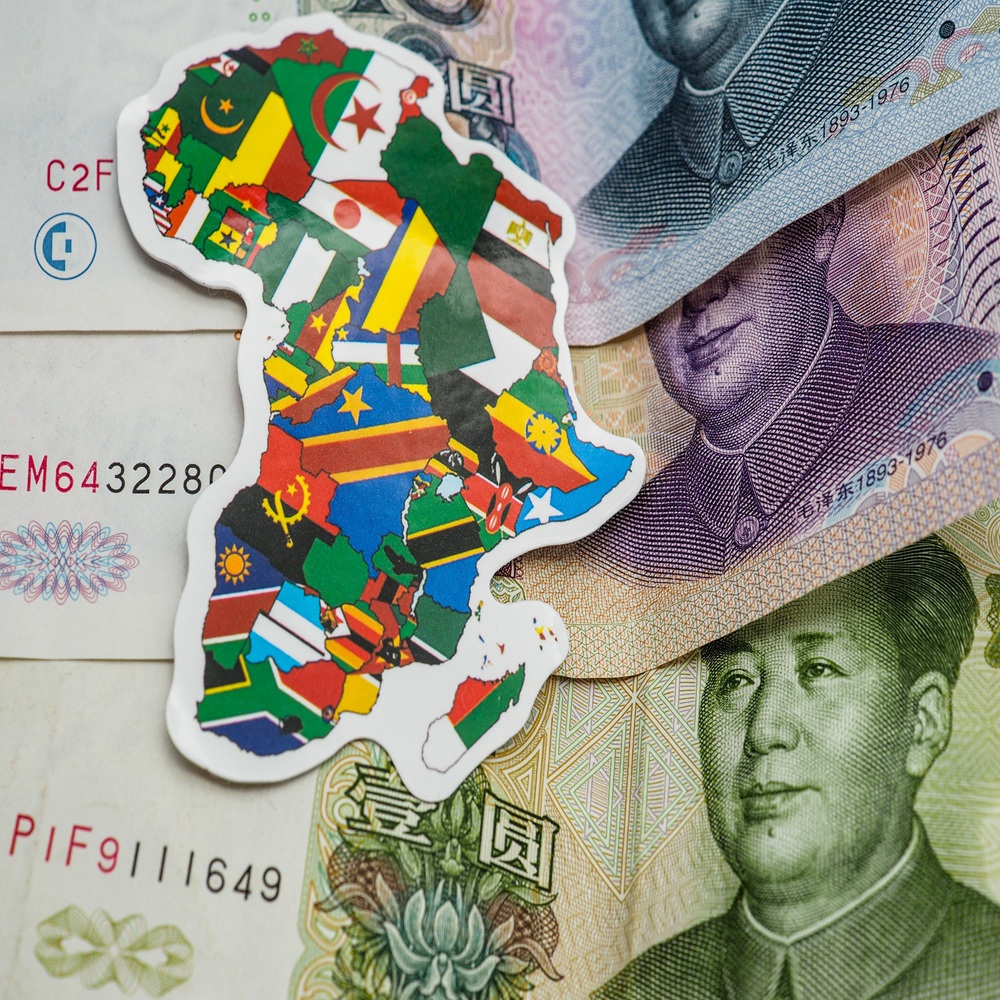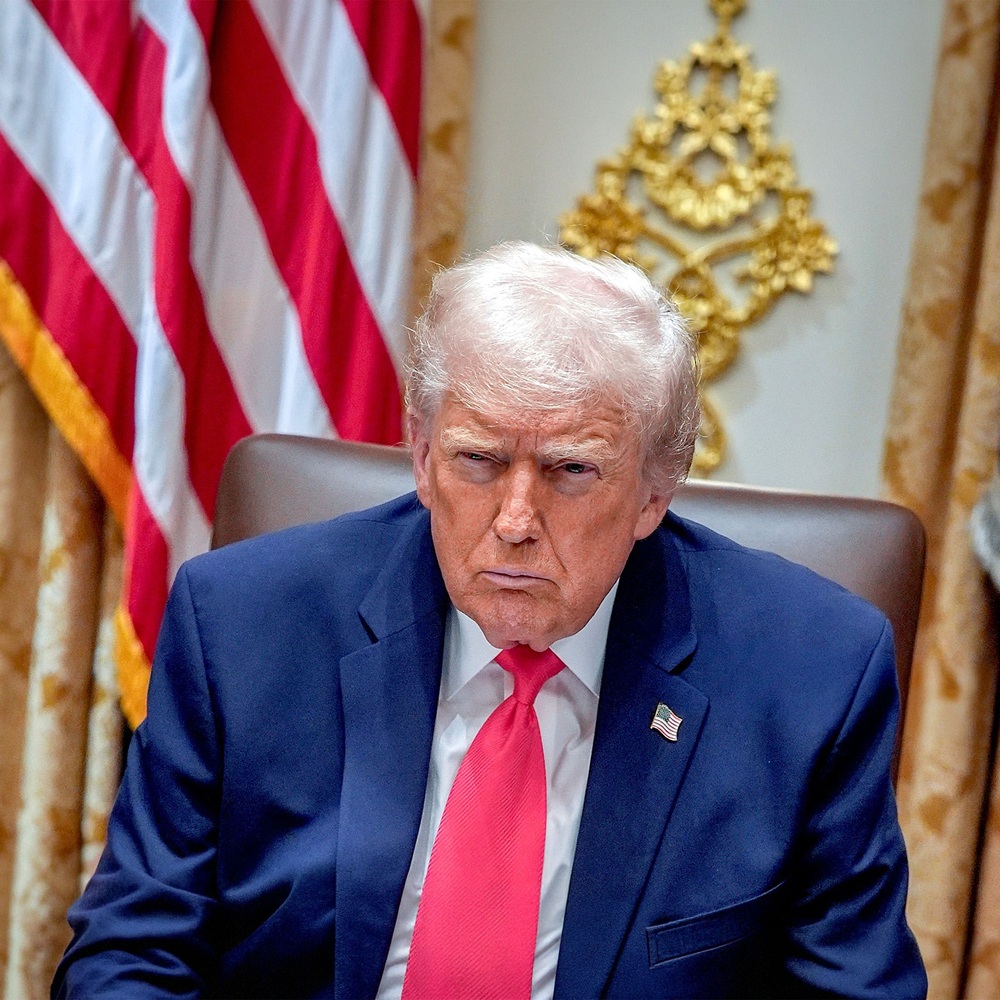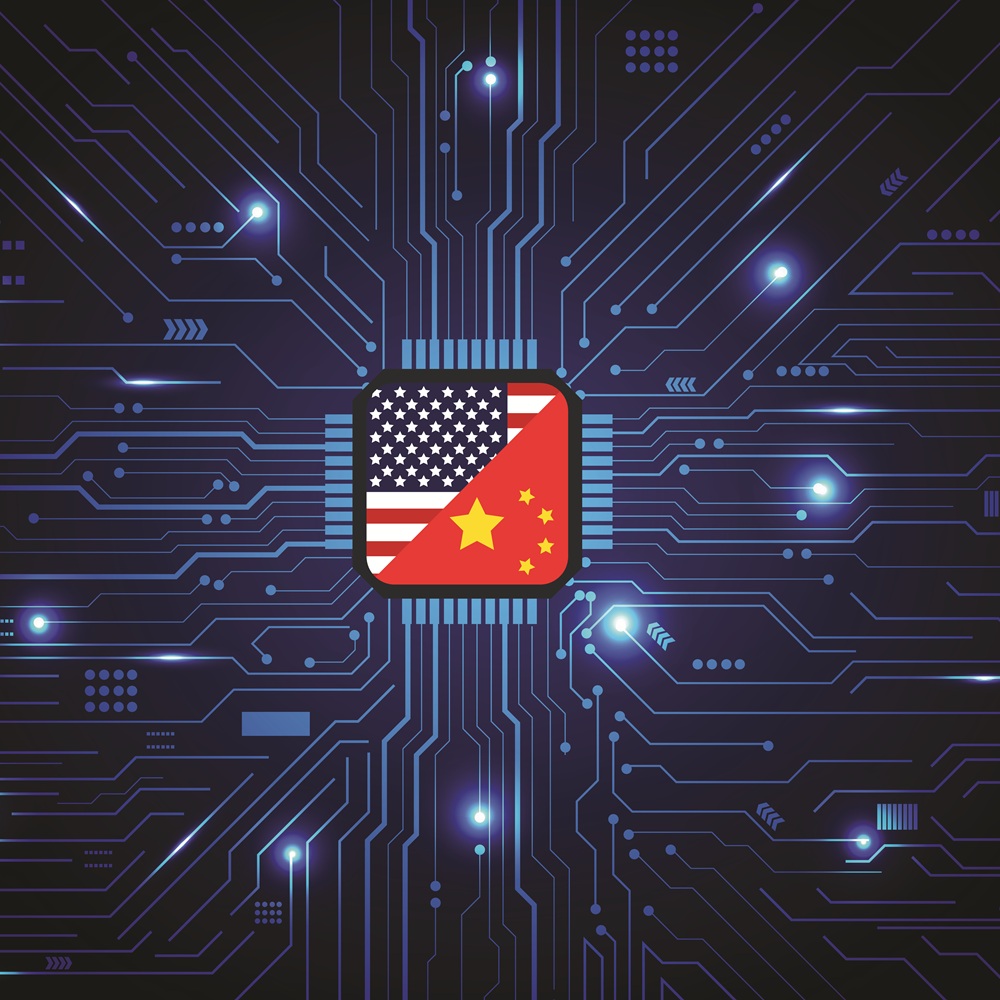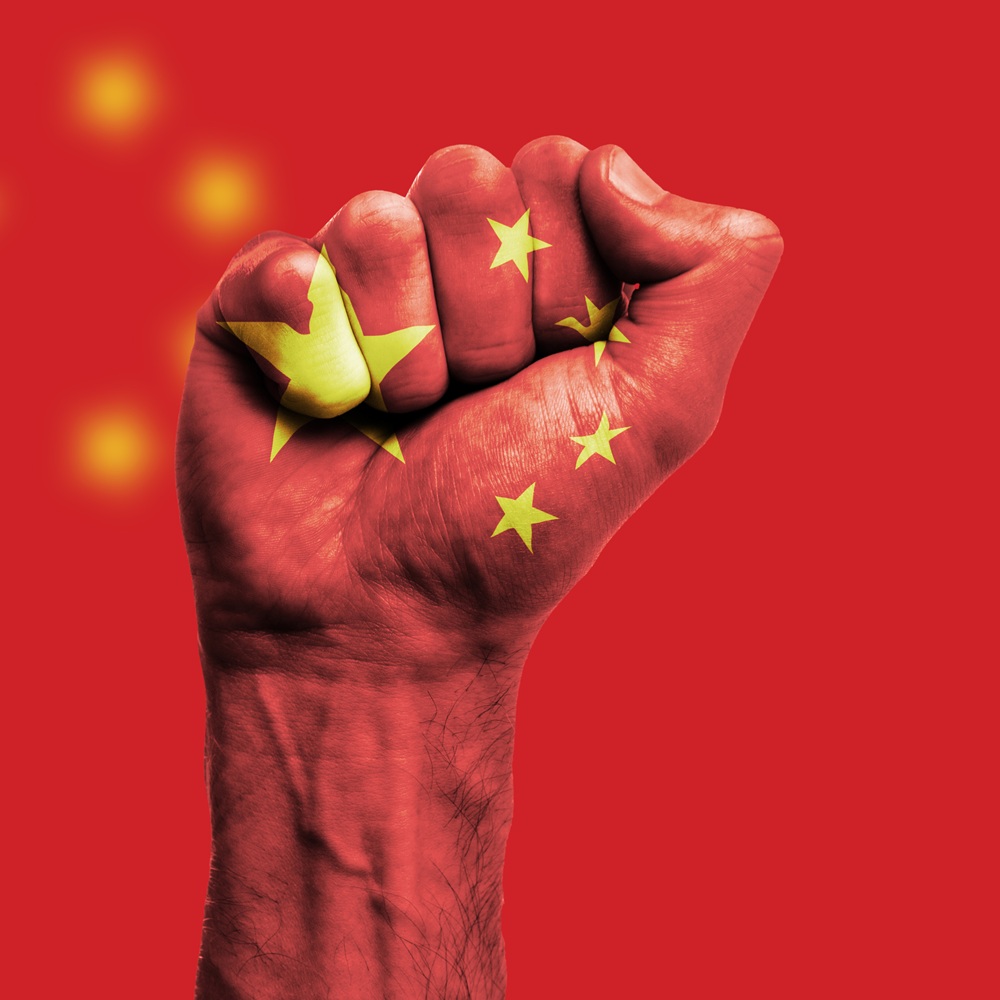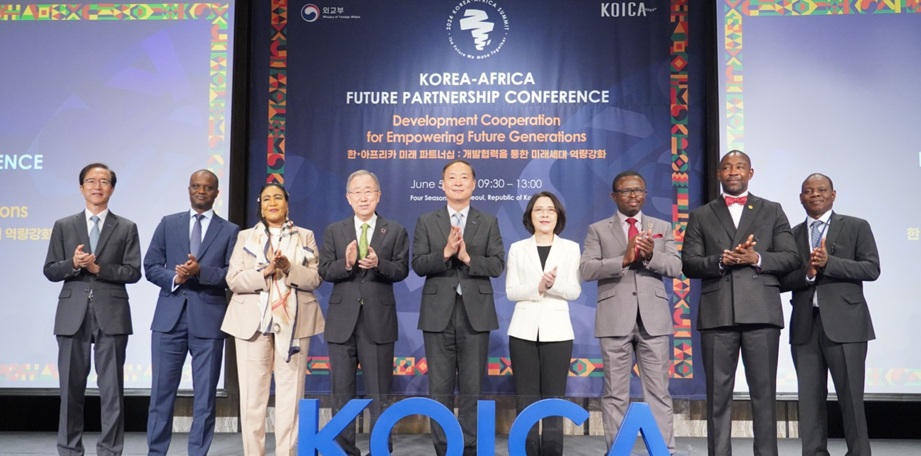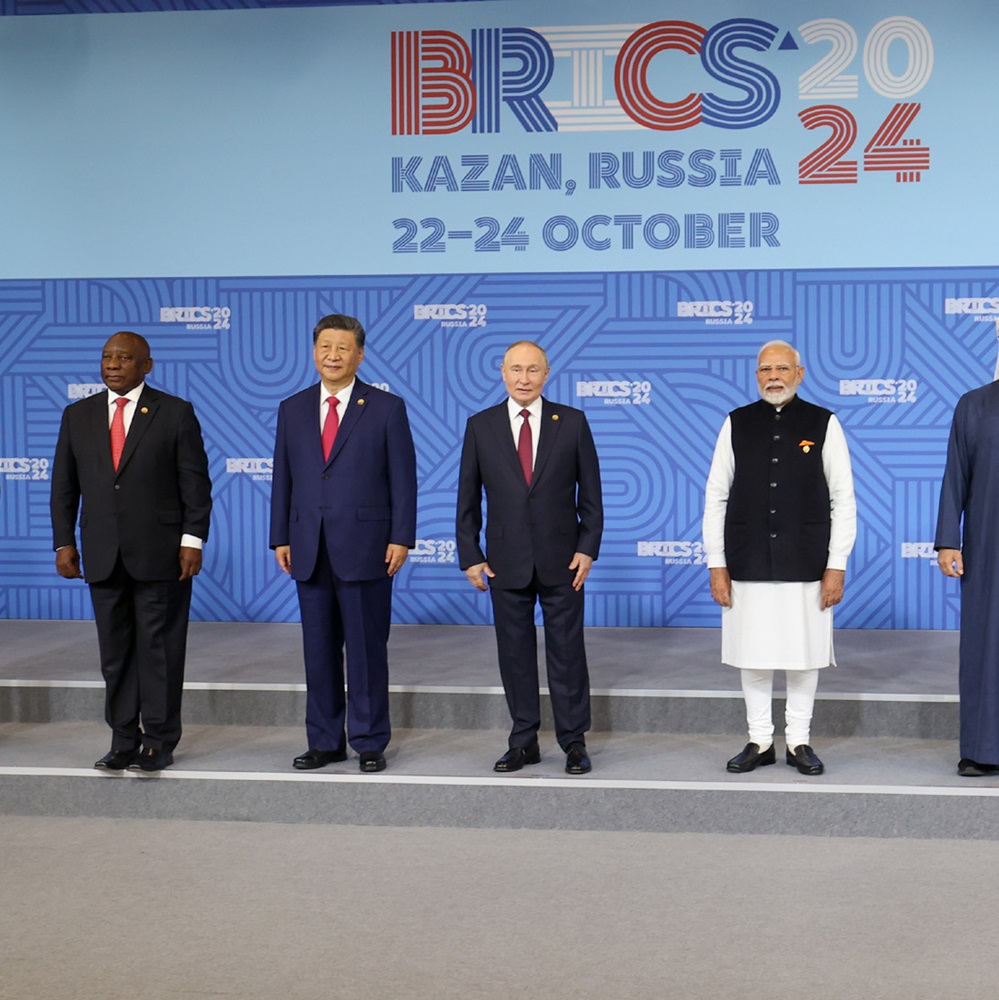The politics of locationality: Interrogating AI development, locational (dis)advantage and governance in Africa
by Vincent Obia
Abstract The paper considers the question of location in the development and governance of artificial intelligence in Africa. The discussion draws from ideas on locational advantage and the mix of factors that affect inequalities in AI development and how this influences the ability that countries have to shape AI norms, cultures and governance. It analyses policy documents and internet databases to highlight Africa’s place in AI development, the continent’s governance approach and the symbiotic relationship that explains the influence of advanced countries and tech corporations in the AI landscape. Based on this, it proposes the concept of the ‘politics of locationality’ to extend our understanding of how the power resident in AI systems is associated with their primary situatedness and how this reality, in turn, (re)produces imbalances and unequal opportunities for Africa in AI development and governance. It concludes with implications for Africa’s contribution to global AI cultures, design and governance at this time of pressing need for well-balanced AI policies. KeywordsAI governance, culture, ethics, inequality, locational advantage, politics of locationality Introduction The race for supremacy in AI development and governance has gathered pace among leading countries such as the US, European nations and China (Bradford, 2023). Many of the largest AI companies and models trace their origins to these countries and benefit from massive investments in computing, data and skills (Moorosi, 2024). By contrast, African countries mainly boast of AI startup ecosystems coordinated by technology hubs such as Kenya’s ‘Silicon Savannah’ (Eke et al., 2023) and African journalists have had to grapple with tools like ChatGPT, given the relevance of generative AI for media production (Gondwe, 2023). Although many of these experiences show Africa’s creative potential in the AI sector, as well as its growing market for AI technologies and tools (Okolo et al., 2023), there remain complex historical, cultural, political, legal, economic, labour and data factors that the continent faces in its drive towards AI development and governance. This mix of factors is a subject that scholars have considered to varying degrees (Muldoon and Wu, 2023; Png, 2022). I build on this by examining the question of locationality within that mix and how locationality helps to explain aspects of the symbiotic relationship between countries and platforms in shaping AI design and governance principles within a global context. My discussion sits at the intersection of critical media studies (Ott and Mack, 2014), digital geopolitics (Wong, 2021) and AI studies (Crawford, 2021), seeking to demonstrate why AI, understood as a political tool for constructing knowledge and generating maps of meaning, should be situated. This focus on situatedness further ties into studies on economic geography and locational advantage (Dunning, 1998; Iammarino and McCann, 2013), which explain why multinationals such as AI companies are more likely to choose certain locations as headquarters and how these locations are better placed to acquire greater leverage and power. It relates to the understanding that the location where a technology company is headquartered has considerable influence to shape that company’s decisions (Sargsyan, 2016), presupposing that advanced AI development confers locational advantage on the place where this development is primarily domiciled, making it a locus of power in shaping global AI ethics, norms and governance. This presupposition is what I interrogate by asking: How do issues around the location of AI development explain the impact that African countries have to shape AI design, cultures and governance in light of inequalities between advanced nations and the majority world? This question is crucial as it indicates which countries are better positioned as key definers of AI at a time when the design, norms, ethics, principles and governance of the technology are being concretised. It also leads to my argument on what I call the ‘politics of locationality’ as a concept to advance our understanding of how the primary situatedness of leading AI companies in advanced locations (such as the Global North) reveals inequalities in AI development and governance in the majority world. In this paper, advanced locations refer to the US, Europe and China – following Bradford’s (2023) description of them as the three digital empires, having the capacity not only to define the digital ecosystem in line with their cultures and priorities, but also shape the digital values of other countries that fall under their influence. The discussion that follows flows through a review of the literature, my methodology and findings, culminating in my argument on the politics of locationality. Locationality and the mix of factors in AI development Across the AI landscape, ethical principles are vital because they guide AI development, design and governance (Tidjon and Khomh, 2022). In Africa, some of the ethical and cultural values that researchers contend should guide AI development include ubuntu (communal humaneness), humanism and indigenous knowledge (Nayebare, 2019; Mhlambi and Tiribelli, 2023). Not enough of this has been realised, however, given that AI technologies on the continent remain a largely Western import (Eke et al., 2023). Nonetheless, home-grown African AI systems have been on the rise, evident in the creation of technology centres such as Kenya’s ‘Silicon Savannah’, Ethiopia’s ‘Sheba Valley’ and Nigeria’s ‘Yabacon Valley’ (Eke et al., 2023). The centres serve as ecosystems that provide leverage for AI startups that are supported by communities such as Data Science Nigeria and Deep Learning Indaba (Nuwer, 2024). Okolo et al. (2023) found that there are at least 102 of these startups in Africa. But they face challenges ranging from limited infrastructure for energy and computing-intensive technology and lack of expertise (Nuwer, 2024). These challenges presuppose that AI development on the continent is likely to lag behind global advancements – with implications for the influence that the continent has as a place from which AI norms, ethics and governance are shaped. The US remains a dominant player in shaping AI ethics and governance. Chan et al. (2021), for instance, observe that the US is predominant in the AI development space, in line with its economic and cultural dominance and China follows closely behind, pointing to a US-China tech war in digital geopolitics (Wong, 2021). China, in particular, has exported AI facial recognition and smart city technologies to Africa, serving as the continent’s largest foreign ICT investor (Lin, 2024), with increasing access to African datasets (Okolo et al., 2023) – a worrying trend. Also, investments in AI still concentrate in countries like the US and China, with only 1% of global venture capital flows into Africa (Moorosi, 2024). This means profits from AI development are typically reinvested in the leading countries, creating further disparities between them and the majority world (Chan et al., 2021). Although major tech companies (e.g. Google and Microsoft) have invested in Africa by establishing AI labs in African countries, Chan et al. (2021) note that it is common for staff working in these labs to be based in advanced countries. These major AI companies have also diversified their locational presence by outsourcing some operations through an international division of labour across Africa. But they tend to do so in exploitative ways such as hiring low-wage data annotators, highlighting the continent’s locational disadvantage (Ludec et al., 2023). What this points to is the relation of labour and capital, which further underscores Muldoon and Wu’s (2023) description of the global AI supply chain as colonial, since it is actualised through an international division of digital labour that extracts value from labour in the majority world for the benefit of Western technological companies. It also reinforces hegemonic knowledge production through Western values and knowledge that marginalise non-Western alternatives (Muldoon and Wu, 2023). This hegemonic knowledge production leads to questions on the role of the human in the machine, since AI is not based on abstract models, but is embedded in human agency and cultural values (Natale and Guzman, 2022). Additionally, this hegemonic knowledge production not only ties into discourses on power in critical media studies (Ott and Mack, 2014), but also on the relevance of AI for creative and cultural work (Lee, 2022) – as seen in the use of ChatGPT, which, African journalists say, is built on a poor and non-representative African corpus and perpetuates stereotypes of the continent (Gondwe, 2023). What the foregoing, therefore, indicates are the mix of historical, technological, economic, labour and cultural factors that underpin AI development and deployment in Africa’s locational context, with implications for governance outcomes. AI governance and digital regulation in Africa In terms of governance, state actors in Africa have drawn up policy and legal instruments at local levels and are only just taking part in global multistakeholder conversations. Examples of these multistakeholder fora include the AI Governance Alliance of the World Economic Forum (2025), where three African countries (Rwanda, South Africa and Kenya) are represented and the Global Partnership on Artificial Intelligence (2025), where Senegal is the only African country. It is unclear what influence African countries wield in multistakeholder bodies like these, but the indication is that inclusion is usually performative and exists for ‘virtue signalling and promotional purposes’ (Png, 2022: para. 17). At continental and regional levels, Plantinga et al. (2024) observe that African countries have increasingly turned towards AI strategies, but without considering how feasible these are to implement and their suitability to local contexts. There are also data localisation laws, which stipulate that data be stored and processed in the location where they are generated, with restrictions on data transfers across borders (Giovane et al., 2023). These laws, which point to the geographical relevance of data, have been introduced by at least 16 African countries, including Mauritius, Lesotho and Ivory Coast; they are also present in legal instruments on data protection, financial transactions, cybersecurity and telecommunications in several countries across the continent (CIPESA, 2022). Locationality is therefore the underlying principle in data localisation, underscoring the importance of data for AI control and governance. Sargsyan (2016: 2224), for instance, notes: ‘countries that host intermediaries’ data centres and offices have more opportunities to exercise influence over companies’ decisions and claim jurisdiction over data stored in their territory.’ What is crucial here is the presence of data centres which is vital for AI production, and African countries face challenges in relation to data, since the continent’s data centre landscape is nascent although growing (DCByte, 2023). When it comes to enforcement, only a few countries have been successful in imposing local laws and claiming jurisdiction over data stored in data centres, the most successful being the US (Sargsyan, 2016: 2231). This underscores the difficulties of AI policy implementation that African governments face, since, as CIPESA (2022) notes, there is barely any evidence that data localisation laws have been enforced in Africa. Where implementation has been more practicable is in the imposition of internet taxes on users in countries like Guinea, Benin, Uganda and Zimbabwe (Bergére, 2019). The infrastructure platforms through which governments enforce the taxes are local Internet Service Providers (ISPs) and telecommunication providers (Bergére, 2019). The same process finds expression in the imposition of internet bans in Africa – enforcement targets usage disruption and is done through local ISPs (Parks and Thompson, 2020). African countries ordinarily enjoy a positive balance of power in comparison with local ISPs. Also, the fact that major tech and AI companies can be banned from operating or delivering services in any African country points to the power that the state has to impose controls as a means of last resort. Users can also deploy collective action against AI companies (Fratini and Musiani, 2024). All these highlight the diverse ways in which power and governance are contested at local levels but say little about the place that Africa holds in contributing to and shaping AI ethics, governance and worldviews in the global sense. If, as Sargsyan (2016) notes, the location where a technology company is headquartered has significant powers to influence the decisions of the technology company, then what does Africa’s record in AI development imply for its ability to shape AI design, ethics, cultures and governance? This question is what I aim to answer in interrogating the relevance of the politics of locationality for AI in Africa. Method To this end, I draw from a methodological approach informed by textual analysis of AI policy documents and critical analysis of internet databases containing the location associated with AI companies/models. For the AI policy documents, I focussed on three domains. The first domain concerned the AI policies of African countries, where I selected the AI Strategies of four countries: Mauritius (Mauritius AI Strategy, 2018), Egypt (Egypt AI Strategy, 2021), Rwanda (Rwandan National AI Policy, 2022) and Nigeria [draft] (Nigerian AI Strategy, 2024), representing South, North, East and West Africa respectively. I also reviewed the African Union’s (2024) AI Strategy. Mauritius, Egypt and Rwanda are particularly relevant because they are the first three countries to introduce AI strategies in Africa. I chose AI strategies because they comprise one of the major emphases for policymakers on the continent (Maslej et al., 2024). I analyse the strategies based on themes, which I developed after reviewing and coding the texts. The second domain included the AI policies of leading global players in AI: the US, EU and China. Here, my analysis aimed to ascertain whether these policies mandate AI firms to develop their technologies in line with principles and standards upheld by the leading countries. The third domain included the policies of some of the largest AI companies/models: OpenAI and Gemini (for the US), Darktrace (for the UK) and UBTECH and Qwen (for China). My aim was to examine whether these AI companies/models subject their policies and practices to the countries or places where they are headquartered. For the database searches, I accessed and reviewed the following to ascertain the location of AI companies globally: Datamation (see Jungco, 2024), AI Directory (2024) and the Companies Market Capitalisation (2024). I also drew from sources such as Epoch AI (2024), the Emerging Technology Observatory’s (2024) AI Country Activity Tracker and the AI Index Report (Maslej et al., 2024). Overall, my goal was to assess Africa’s place in AI development in comparison with the leading countries in AI before considering the leverage that locationality affords to nations when it comes to AI design, ethics and governance – the underlying premise for the politics of locationality. Locational advantage and AI development in Africa While acknowledging the mix of factors that comprise AI development, my findings focus on locationality by considering the number of AI companies headquartered in Africa and elsewhere. Here, I found that most AI companies are headquartered in advanced countries, with many of the largest AI companies being in the US. These are companies that have significant capitalisation as listed on the Companies Market Cap to scale globally and invest in AI infrastructure and models that fundamentally impact societies. Jungco’s (2024) review shows that the overwhelming majority (80%) of these companies are based in the US (81 out of 101 companies). The closest to this was the UK, which had eight companies out of 101. India and Canada had three each; China and Germany had two each; and Israel and Hong Kong had one each. The same is true for data compiled by AI Directory (2024) and the Companies Market Capitalisation (2024). I compiled the three listings (Jungco, 2024; AI Directory and the Companies Market Cap) and removed duplicates. The combined list comprised 234 of the largest AI companies (see Table 1), ranging from Apple valued at $3.3 trillion to FR8Tech valued at $2.1 million. The outcome shows that at 73%, the US is the undoubted leader. It is followed by India (5.98%), the UK (5.56%), China (2.99%) and Canada (2.56%). There is no African country on the list. There is a similar outcome for data on notable AI models, such as OpenAI’s ChatGPT, Alibaba’s Qwen and Meta’s Llama. Table 2 shows that, when isolating for AI models owned by organisations or entities that come from only one country, two-thirds (67.7%) of these notable AI models are traceable to the US. Again, no other country comes close; the closest countries are the UK, China, Canada and Germany. Maslej et al. (2024), in the AI Index, also show that foundation AI models, which are the basis for generative AI, are far more prevalent in the US. Again, there are no entries for Africa. If Africa does not serve as a headquarter for the largest AI companies or models, what then can be said about AI startups? To answer this, I consulted the 2024 AI Country Activity Tracker, which presents data on the number of approved AI patents based on country locations, including patents for AI startups. The data, presented in Table 3, show that Africa is only ahead of the Middle East; even at this, Africa accounts for only 0.000006% or 157 of the 250,224 AI patents captured in the tracker. And only three African countries account for the continent’s figures: South Africa (139 patents), Morocco (17 patents) and Kenya (1 patent). Although this figure of 157 is slightly more than the 102 startups that Okolo et al. (2023) provided, the conclusions are similar: Africa has some way to go in making up for AI development in the future. All these show that although Africa provides labour and data for AI companies globally and is poised to be a significant market as internet connectivity spreads (Access Partnership, 2024), it barely serves as a headquarter for AI companies, particularly the largest ones. This underscores Africa’s nascent standing in AI development and suggests that African countries will likely be constrained in their ability to shape wider AI ethics, cultures and governance. It perhaps explains why no African country has passed AI legislation into law (although some attempts are underway), with focus instead on AI task forces, national policies and strategies (Maslej et al., 2024). I turn next to the analysis of these strategies to examine the policy approach to AI development and governance in Africa. Analysing AI strategies in Africa My analysis of the AI strategies/policies of Mauritius, Egypt, Rwanda, Nigeria and the AU shows that they coalesce around four main themes: AI adoption for economic growth, AI partnership and collaboration, improving AI ethics and governance and strengthening local AI capacity. The focus on AI for economic growth is understandable, given that AI’s potential for economic transformation is a major attraction. This focus, which is present in all the strategies, highlights how AI can enhance economic development in various sectors (see in particular, the Mauritian Strategy). But more important, in the context of my discussion, are the inequalities in international cooperation and multistakeholder governance that the strategies point towards. To establish this, I refer to Pillar Two of the Nigerian AI Strategy, which underscores the need for partnership and collaboration among local and international stakeholders to leverage AI expertise and resources. The Rwandan AI Policy also recommends international partnerships and collaboration in AI development. But collaborations, especially with international private actors, highlight the need to evaluate where the major partners come from. These partners can collaborate with African countries and invest in AI, but they still operate primarily by rules set in their home countries, even if they also subscribe to laws in subsidiary countries (I establish this point in the next section). The exception would be collaboration within the continent, as can be found in the Egyptian and AU Strategies. The third theme, which focusses on ethics and governance, acknowledges the risks of AI and the need to mitigate them. It considers the importance of having AI principles such as fairness, transparency and accountability (see the Nigerian Strategy). The AU Strategy also mentions the need to guard against bias and risks to African values, indigenous knowledge and cultural heritage. This is connected to the AU’s Agenda 2063, which has a media and culture mandate to support inclusive and ethical AI through values such as ubuntu. But the plan to address these risks, for the most part, points to multistakeholder governance. The Egyptian Strategy, for instance, seeks to ‘actively contribute to global efforts and playing an active role in AI in different international fora’ (Section 5.1). Rwanda’s Policy also intends to ‘actively contribute to shaping responsible AI principles and practices in international platforms’ (Key Policy Recommendation 14). Likewise, the AU Strategy promotes a ‘multi-tiered governance approach’ (Section 2.4.1). They highlight a move towards greater inclusivity in international governance – hence the use of the word ‘actively’ in many of the strategies. My point, however, is that no matter how ‘actively’ African countries intend to influence AI cooperation, ethics and governance, there is a need to first reckon with Africa’s standing in AI development. Policymakers on the continent seem to have recognised this reality, and it is noticeable in their focus on strengthening local AI capacity. The AU Strategy, for instance, notes that Africa faces challenges around lack of computing platforms, limited data for training AI models and a scarce supply of AI skills, observing that, as of 2023, all the world’s supercomputers are located in only 30 countries. The Nigerian Strategy also recognises the need to build ‘affordable and localised infrastructure foundations and the compute capacity’ (Section 1.4.2) by making high-performance computing available. In Rwanda and Egypt, there is emphasis on AI training in schools. Evident here is a recognition that the continent lags behind in AI development, although it has a growing AI startup ecosystem and an unsaturated market for AI. It underscores the need to interrogate AI development, the locational advantages and disadvantages it represents and its links to governance inequalities. I argue that this should be a major consideration in Africa, based on what I describe as the politics of locationality. The politics of locationality Having established the foundational basis for my argument, I now define the politics of locationality as the way in which the power resident in Big Tech and AI systems is associated with their primary situatedness in places of advanced technological and AI development and how this underlying reality, in turn, (re)produces imbalances and unequal opportunities for AI development and governance faced by countries in the majority world, particularly Africa. The politics of locationality highlights the mix of advantages that countries such as the US, China and those in Europe where the largest AI companies are headquartered have. By contrast, African countries, despite advances that have been made in the AI startup ecosystem and state policy interventions, suffer from a range of disadvantages in locational, political, economic, cultural, data, labour and historical spheres. Addressing this mix of disadvantages is what the continent needs to become a location of influence from which the values, ethics and governance that circumscribe AI can be shaped. To expand on my argument, I refer to the AI policies of some of the largest companies and the guiding principles for AI that leading tech countries have drafted. Take OpenAI for instance. The OpenAI (2024) Terms of Use specify that dispute resolution between the company and users anywhere in the world would be coordinated by National Arbitration and Mediation, headquartered in New York. The law that governs the arbitration is the US Federal Arbitration Act. It adds that, ‘California law will govern these Terms’ and ‘claims arising out of or relating to these Terms will be brought exclusively in the federal or state courts of San Francisco, California’ (see Governing Law Section). This is not surprising, given that OpenAI is headquartered in San Francisco. Also, for Gemini (2024), owned by Google, the governing law of its User Agreement is the laws of New York, and the Agreement is seen as a ‘contract wholly entered into and wholly performed within the State of New York’ (see Governing Law Section). I found a similar pattern in the UK and China. In the UK, Darktrace (2024), an AI cybersecurity firm, notes that the governing law of its Master Services Agreement is the laws of England and Wales, except if the customer is located in the US, in which case the laws of California apply. In China, Section VII of the Terms of Use of UBTECH (2023), an AI robotics firm, states: ‘The establishment, effectiveness, performance, interpretation and dispute resolution of this [user] agreement are subject to the laws of the People’s Republic of China (excluding Hong Kong, Macau, Taiwan).’ The same goes for Alibaba’s Qwen (2023), which is covered by the Alibaba Cloud International Website Terms of Use, the governing law of which is that of Singapore, where Alibaba has its office in the Asia Pacific. Hence, I note that AI companies uphold the laws of the countries where they are headquartered, and they subject the governance of their technologies to these laws. AI companies have also come under sustained pressure to develop rules according to the values, ethics and standards of their host nations, thanks, in part, to the dictates of digital geopolitics and the competition for AI supremacy. The US, for instance, had the Biden Administration’s Executive Order on Safe, Secure and Trustworthy Artificial Intelligence (US Executive Order, 2023), through which it sought to promote an AI market that emphasises US innovation and leadership on AI (Section 2(h)) and the need to encourage international partners to support the voluntary commitments of US AI companies (Section 11(a)(ii)). But these voluntary commitments are underpinned by the need for US leadership and ‘to ensure that artificial intelligence is aligned with values shared by all Americans’ (proposed National AI Commission Act (2023), Section 3(g)(1)). The Biden Executive Order was replaced in January 2025 by the Trump AI Executive Order, aptly named, ‘Removing Barriers to American Leadership in Artificial Intelligence.’ All these underscore that a key intention of US policy is that the design of AI mirrors America’s geopolitical leadership, cultural norms, ethics and jurisprudence. A similar line of argument applies to Europe and China. In Europe, the first clause of the European Union (2024) AI Act says its purpose is to lay ‘a uniform legal framework’ for AI development and deployment ‘in accordance with Union values’ (Section 1) and it supports the ‘European human-centric approach to AI and being a global leader’ in AI development (Section 8). In China, there is the Generative AI Measures released in August 2023. The regulation includes a stipulation that generative AI technologies should not produce content that incite the ‘subversion of national sovereignty or the overturn of the socialist system’ (Henshall, 2023: para. 2). The same ethos is evident in China’s 2023 Management of Deep Synthesis of Internet information Services enacted by the Cyberspace Administration of China (2022). It mandates that in developing products such as AI, companies must abide by Chinese laws, correct political direction and value orientation. This was clearly evident in the January 2025 roll out of DeepSeek, a China-based AI assistant, which when asked about Tiananmen Square, refused to answer, saying it follows ‘ethical guidelines’ and added: ‘I respect the laws and cultural contexts in which I operate’ (author’s conversation with DeepSeek). It goes to show that expansive or restrictive design and deployment of AI technologies are subject to the value system prevalent in their originating countries. Hence, the politics of locationality sustains the different visions that leading tech countries have of AI in their battle for supremacy – visions that are not necessarily inclusive of African perspectives even though they find expression on the continent through pervasive deployment and usage. Conclusion In this paper, I have examined the importance of the location of AI companies and, by so doing, introduced the politics of locationality as a concept to extend our understanding and explain the standing that nations have in AI development and how this translates to the influence they wield in AI governance. My discussion showed that although Africa has a growing AI startup ecosystem, a burgeoning user market base and state influence in policymaking, the continent still faces a mix of disadvantages in historical, technological, political, legal, economic, labour and data spheres. This mix reveals the locational disadvantage that confronts Africa as a place from which AI ethics, cultures and governance can be shaped in the global sense. It relates to Hassan’s (2023) point on the ‘lack of African AI innovations that are rooted in the local context but [have] the potential to compete at the global scale’ (p. 1430). What I found was that AI companies that have global scale and presence are headquartered mainly in leading tech countries (the US, China and European nations) and have subjected themselves to the governing laws of these countries. Conversely, the laws and policies of leading tech countries mandate that these companies, among other things, embed the respective country’s ethos, values and cultures into AI systems. The link between AI systems and cultural values as outlined in this paper, therefore, points to the connection between media and cultural studies and AI. In particular, the paper highlights the importance of considering how AI is produced and shaped by cultural understandings, and how AI further projects, shapes and extends culture. It suggests the need for greater research emphasis on the connections between media, AI and culture, given that AI represents the intersection of human labour, machine learning, infrastructure (e.g. data centres), mineral resources (e.g. lithium), media inputs (vast troves of data: information, texts, pictures, videos, maps, and codes) and classification systems that all combine to transform AI models into mechanics of knowledge construction (Crawford, 2021). The outcome are mediated outputs (e.g. AI responses to prompts and automated decisions) – outputs that simultaneously represent and transform culture, even as they are shaped by it. Equally crucial and more important, in the context of this paper, is the need to consider the locationality of it all. By this I mean the globalised and complex interaction of locations in AI development and governance that potentially determines whose culture is elevated and whose culture is progressively silenced in a relationship defined by hegemony and inequality. Key to understanding this hegemony-inequality mix is the principle of locational advantage, which Iammarino and McCann (2013) describe as a two-way relationship between multinationals and their locational headquarters, noting that just as location is becoming increasingly vital for multinationals, so also are multinationals progressively more important for location (i.e. cities or countries). It underscores my argument on the politics of locationality, which shows that just as large AI firms need locations, such as the US or China, that have the right mix of advantages to serve as headquarters, so also do leading tech countries need and use these firms in setting the cultural and governance paradigm for AI technologies. This structural makeup reflects the imbalances in AI development, explaining why AI governance systems exist within institutional-heterogenous regimes that reproduce Global North dominance (Png, 2022). Addressing these imbalances is what African countries, supported by the AU, should focus on, and there are initial signs that African countries are starting to do this (as seen in the AI strategies). However, a bolder and more robust approach to AI development that is attuned to Africa’s unique sociopolitical context and economic evolution is needed to confront the imbalances tied to the politics of locationality. By so doing, Africa can be positioned to assume locational advantage, with important consequences for inclusive AI and the contribution of global majority countries to the cultures and values embedded in AI systems and the ethics and frameworks by which they are governed. AcknowledgmentsThe author extends appreciation to the editors and reviewers for their helpful and constructive comments, and also to the participants at the 2023 International Symposium on AI Cultures at the University of Turin for their feedback – all of which strengthened the article.Declaration of conflicting interestsThe author declared no potential conflicts of interest with respect to the research, authorship, and/or publication of this article.FundingThe author disclosed receipt of the following financial support for the research, authorship, and/or publication of this article: This work was supported by the Leverhulme Trust as part of an Early Career Fellowship. The University of Sheffield provided open access funding.ORCID iDVincent Obia https://orcid.org/0000-0003-1650-9103ReferencesAccess Partnership (2024) Tech Policy Trends 2024. Available at: https://accesspartnership.com/tech-policy-trends-2024-the-global-south-is-the-new-epicentre-of-internet-governance-innovation/ (accessed 4 January 2025).African Union (2024) Continental artificial intelligence strategy. Available at: https://au.int/sites/default/files/documents/44004-doc-EN-_Continental_AI_Strategy_July_2024.pdf (accessed 10 October 2024).AI Directory (2024) Database of artificial intelligence & machine learning companies. Available at: https://www.aidirectory.org/ (accessed 10 September 2024).Bergére C (2019) “Don’t tax my megabytes”: Digital infrastructure and the regulation of citizenship in Africa. International Journal of Communication 13: 4309–4326.Bradford A (2023) Digital Empires: The Global Battle to Regulate Technology. New York, NY: Oxford University Press. Crossref.Chan A, Okolo CT, Terner Z, et al. (2021) The limits of global inclusion in AI development. arXiv. Crossref. PubMed.CIPESA (2022) Which way for data localisation in Africa? Available at: https://cipesa.org/wp-content/files/briefs/Which_Way_for_Data_Localisation_in_Africa___Brief.pdf (accessed 16 December 2024).Companies Market Capitalisation (2024) Largest AI companies by market capitalization. Available at: https://companiesmarketcap.com/artificial-intelligence/largest-ai-companies-by-marketcap/#google_vignette (accessed 5 September 2024).Crawford K (2021) The Atlas of AI: Power, Politics, and the Planetary Costs of Artificial Intelligence. New Haven: Yale University Press.Cyberspace Administration of China (2022) Provisions on the management of deep synthesis of internet information services. Available at: https://www.cac.gov.cn/2022-12/11/c_1672221949354811.htm (accessed 12 October 2024).Darktrace (2024) Master services agreement. Available at: https://cdn.prod.website-files.com/626ff4d25aca2edf4325ff97/66fc2bc0317776db72ac418c_Darktrace%20MSA%20v2.0%202024-10-01.pdf (accessed 4 October 2024).DCByte (2023) Africa’s key data centre markets. Available at: https://africadca.org/wp-content/uploads/2023/07/Title_Africas-Key-Data-Centre-Markets.pdf (accessed 17 December 2024).Dunning JH (1998) Location and the multinational enterprise: A neglected factor? Journal of International Business Studies 29(1): 45–66. Crossref. Web of Science.Egypt AI Strategy (2021) Egypt National Artificial Intelligence strategy. Available at: https://mcit.gov.eg/Upcont/Documents/Publications_672021000_Egypt-National-AI-Strategy-English.pdf (accessed 5 July 2023).Eke DO, Wakunuma K, Akintoye S (2023) Introducing responsible AI in Africa. In: Eke DO, Wakunuma K, Akintoye S (eds) Responsible AI in Africa: Challlenges and opportunities. Chan, Switzerland: Palgrave Macmillan, pp.1–11. Crossref.Emerging Technology Observatory (2024) AI Country Activity Tracker. Available at: https://cat.eto.tech/?countryGroups=Africa%2CAsia%20Pacific%2CEurope%2CLatin%20America%20and%20the%20Caribbean%2CNorthern%20America%2COceania&dataset=Patent&expanded=Summary-metrics (accessed 7 September 2024).Epoch AI (2024) Notable AI models. Available at: https://epoch.ai/data/notable-ai-models?view=table#explore-the-data (accessed 7 September 2024).European Union (2024) Artificial Intelligence Act. Available at: https://eur-lex.europa.eu/legal-content/EN/TXT/PDF/?uri=OJ:L_202401689 (accessed 25 January 2025).Fratini S, Musiani F (2024) Data localization as contested and narrated security in the age of digital sovereignty: The case of Switzerland. Information, Communication & Society: 1–19. Crossref. Web of Science.Gemini (2024) User Agreement. Available at: https://www.gemini.com/legal/user-agreement#section-business-day (accessed 4 October 2024).Giovane CD, Ferencz J, López-González J (2023) The nature, evolution and potential implications of data localisation measures. OECD Trade Policy Papers, No. 278. Paris, France: OECD Publishing.Global Partnership on Artificial Intelligence (2025) GPAI Members. Available at: https://gpai.ai/community/ (accessed 7 January 2025).Gondwe G (2023) CHATGPT and the Global South: How are journalists in sub-Saharan Africa engaging with generative AI? Online Media Global Communication 2(2): 228–249. Crossref.Hassan Y (2023) Governing algorithms from the South: A case study of AI development in Africa. AI & Society 38: 1429–1442. Crossref. Web of Science.Henshall W (2023) How China’s new AI rules could affect U.S. companies. Times, 19 September.Iammarino S, McCann P (2013) Multinationals and Economic Geography: Location, Technology and Innovation. Cheltenham: Edward Elgar. Crossref.Jungco KG (2024) 100 top AI companies trendsetting in 2024. Available at: https://www.datamation.com/featured/ai-companies/ (accessed 9 September 2024).Lee H-K (2022) Rethinking creativity: Creative industries, AI and everyday creativity. Media, Culture & Society 44(3): 601–612. Crossref. Web of Science.Lin B (2024) Beyond authoritarianism and liberal democracy: Understanding China’s artificial intelligence impact in Africa. Information, Communication & Society 27(6): 1126–1141. Crossref. Web of Science.Ludec CL, Cornet M, Casilli AA (2023) The problem with annotation. Human labour and outsourcing between France and Madagascar. Big Data & Society 10(2): 1–13. Crossref.Maslej N, Fattorini L, Perrault R, et al. (2024) The AI index 2024 annual report. Available at: https://aiindex.stanford.edu/wp-content/uploads/2024/05/HAI_AI-Index-Report-2024.pdf (accessed 23 September 2024).Mauritius AI Strategy (2018) Maritius Artificial Intelligence strategy. Available at: https://ncb.govmu.org/ncb/strategicplans/MauritiusAIStrategy2018.pdf (accessed 20 June 2023).Mhlambi S, Tiribelli S (2023) Decolonizing AI Ethics: Relational Autonomy as a Means to Counter AI Harms. Topoi 42: 867–880. Crossref. Web of Science.Moorosi N (2024) Better data sets won’t solve the problem — we need AI for Africa to be developed in Africa. Nature 636: 276. Crossref. PubMed. Web of Science.Muldoon J, Wu BA (2023) Artificial intelligence in the colonial matrix of power. Philosophy & Technology 36(80): 1–24.Natale S, Guzman AL (2022) Reclaiming the human in machine cultures: Introduction. Media, Culture & Society 44(4): 627–637. Crossref. Web of Science.National AI Commission Act (2023) National AI Commission Act (H.R.4223). Available at: https://www.congress.gov/bill/118th-congress/house-bill/4223/text (accessed 4 October 2024).Nayebare M (2019) Artificial intelligence policies in Africa over the next five years. XRDS 26(2): 50–54 Crossref.Nigerian AI Strategy (2024) National Artificial Intelligence strategy [draft]. Available at: https://ncair.nitda.gov.ng/wp-content/uploads/2024/08/National-AI-Strategy_01082024-copy.pdf (accessed 4 October 2024).Nuwer R (2024) Africa’s newest resource could be a game-changer for the global south. Nature, 19 September.Okolo CT, Aruleba K, Obaido G (2023) Responsible AI in Africa—Challenges and opportunities. In: Eke DO, Wakunuma K, Akintoye S (eds) Responsible AI in Africa: Challenges and Opportunities. Chan, Switzerland: Palgrave, pp.35–64. Crossref.OpenAI (2024) Terms of Use. Available at: https://openai.com/policies/row-terms-of-use/ (accessed 4 October 2024).Ott BL, Mack RL (2014) Critical Media Studies: An Introduction. West Sussex: Wiley Blackwell.Parks L, Thompson R (2020) The slow shutdown: Information and Internet regulation in Tanzania from 2010 to 2018 and impacts on online content creators. International Journal of Communication 14: 4288–4438. Web of Science.Plantinga P, Shilongo K, Mudongo O, et al. (2024) Responsible artificial intelligence in Africa: Towards policy learning. Data & Policy 6: e72. Crossref. Web of Science.Png M-T (2022) At the tensions of South and North: Critical roles of Global South stakeholders in AI governance. In: Bullock JB, Chen Y-C, Himmelreich J, et al. (eds) The Oxford Handbook of AI Governance. Oxford: Oxford University Press. Crossref.Qwen (2023) Alibaba cloud international website terms of use. Available at: https://www.alibabacloud.com/help/en/legal/latest/alibaba-cloud-international-website-terms-of-use-alibaba-cloud-international-website-terms-of-use (accessed 8 October 2024).Rwandan National AI Policy (2022) The national AI policy. Available at: https://rura.rw/fileadmin/Documents/ICT/Laws/Rwanda_national_Artificial_intelligence_Policy.pdf (accessed 5 July 2023).Sargsyan T (2016) Data localization and the role of infrastructure for surveillance, privacy, and security. International Journal of Communication 10: 2221–2237. Web of Science.Tidjon LN, Khomh F (2022) The different faces of AI ethics across the world: A principle-implementation gap analysis. arXiv. Crossref.UBTECH (2023) Terms of Use. Available at: https://www.ubtrobot.com/en/privacy/termOfUse (accessed 4 October 2024).US Executive Order (2023) Executive order on the safe, secure, and trustworthy development and use of artificial intelligence. Available at: https://www.whitehouse.gov/briefing-room/presidential-actions/2023/10/30/executive-order-on-the-safe-secure-and-trustworthy-development-and-use-of-artificial-intelligence/ (accessed 10 January 2024).Wong PN (2021) Techno-Geopolitics: US-China Tech War and the Practice of Digital Statecraft. London: Routledge. Crossref.World Economic Forum (2025) AI Governance Alliance - Our partners. Available at: https://initiatives.weforum.org/ai-governance-alliance/partners#countries=Africa (accessed 7 January 2025).
